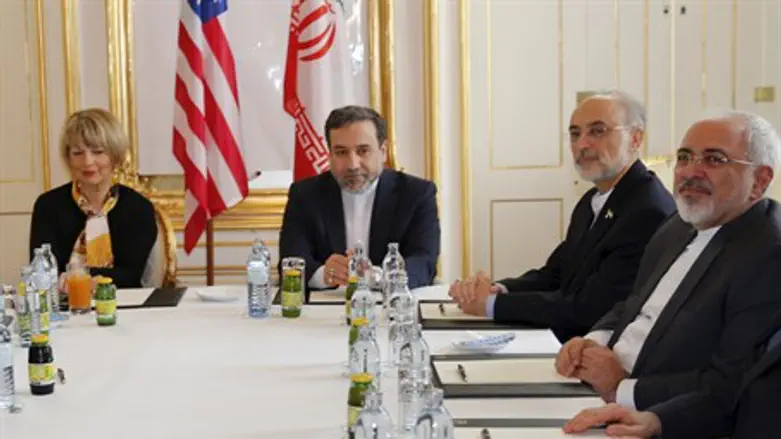
Nuclear negotiations between Tehran and six world powers were set to miss a midnight deadline on Monday to reach a final deal, but diplomats from all sides said they hoped for a breakthrough in the coming hours, Reuters reports.
Iranian Foreign Minister Mohammad Javad Zarif said an agreement was possible on Tuesday, though Western and Iranian officials warned that sticking points remain, including a UN arms embargo, and that things could still fall apart.
The White House said significant issues remained to be resolved and Iran faced some tough decisions, according to Reuters.
"There continue to be significant issues that remain," White House spokesman Josh Earnest said Monday. "They're not going to sign on to an agreement until all of our concerns have been addressed. And as long as they continue to make progress in doing that, then the talks will, will continue."
Meetings continued late into Monday with some diplomats hoping a breakthrough could happen overnight as they continued to struggle over issues such as UN sanctions and access to Iranian military sites, the report added.
Earlier, U.S. Secretary of State John Kerry sat in silence when asked if the deadline might be extended or if he could rule out an extension.
His Iranian counterpart said "there shouldn't be any extension", according to the semi-official Fars news agency, only to add: "But we can continue the talks as long as necessary."
Major disagreements in the talks have included Iran's refusal to allow inspections on sensitive nuclear sites, its refusal to disclose the military aspects of its nuclear program, its demand for the immediate removal of all sanctions, and a demand to end the UN arms embargo on the Islamic regime.
Earlier Monday, Iranian Deputy Foreign Minister Abbas Araqchi, who is serving as Iran's chief negotiator in the nuclear negotiations, was quoted by state-controlled PressTV as saying there are several key issues holding back a final deal.
"Talks have reached the final breathtaking moments; certain issues still remain," Araqchi said. "As long as these issues are not settled, one cannot say we have reached an agreement."
Talks have meandered on through three deadlines that were extended one after the other, first on June 30, then July 7, and then July 10 which coincidentally was Iran's "Death to Israel Day."
Ahead of the last official deadline, Kerry essentially took the negotiations off the clock, saying, "We will not be rushed," and "we shouldn’t get up to leave because the clock strikes midnight."

